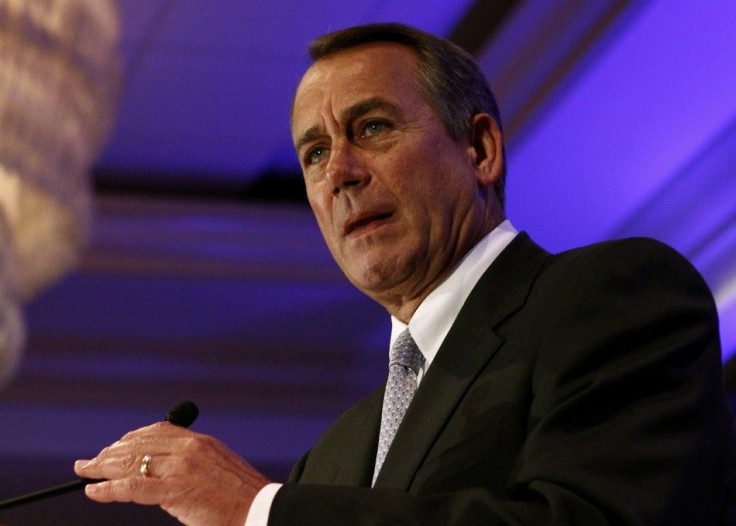Boehner's Pulls Out a 'Real Disappointment'

House Speaker John Boehner said on Saturday that he will pursue a smaller deficit reduction deal, opting for a $2 trillion goal instead the larger on that the White House is pushing.
The speaker said the White House wanted tax increases in a deficit reduction deal of as much as $4 trillion over 10 years. Republicans have been against tax increases, and Boehner stood by this.
Instead, Boehner said negotiators should focus on deficit reductions identified by a bipartisan group led by Vice President Joe Biden.
To back off now will not only fail to solve our fiscal challenge, it will confirm the cynicism people have about politics in Washington, White House communications director Dan Pfeiffer said.
Boehner said he believed the best approach may be to focus on producing a smaller measure.
The White House is pushing to reduce the deficit to open the way for a vote in Congress to increase the government's $14.3 trillion debt limit. The vote is crucial to avert a default on the nation's financial obligations, according to the Treasury Department.
Despite good-faith efforts to find common ground, the White House will not pursue a bigger debt reduction agreement without tax hikes, Boehner said.
Obama told lawmakers he won't sign any agreement that fails to raise the debt limit through the 2012 election, according to sources familiar with the matter.
Senate Majority Leader Harry Reid said that he is disappointed that Republicans are unable to work with us to take a historic step forward.
Some observers are saying the concessions need to be made in order to address the nation's growing economic woes.
The unemployment rate in June unexpectedly climbed to 9.2 percent, the highest this year. Employers added 18,000 jobs, the weakest growth since September 2010. Payroll growth for May also was revised downward, to 25,000.
Markets will not be persuaded by a 'mini-deal' that fails to address the most problematic parts of the budget and falls short of the needed $4 trillion, for long, Maya MacGuineas, president of the Committee for a Responsible Federal Budget in Washington.
We should not be lulled into thinking that an election will make the necessary tough choices any easier -- more likely the hardest issues will only become more politicized. This is a real disappointment,
The President will return to Washington on Sunday to continue the debt talks with congressional leaders.
© Copyright IBTimes 2024. All rights reserved.











